Happy Classical National Poetry Day!
October 2, 2014
In great haste… I spotted this morning, while procrastinating, that today is National Poetry Day! This clearly needed to be marked, and I’m just back from some rapid poetry-bombing of the Humanities Building. I felt that what was needed was some poetry in English (I wanted it to speak too everybody in the building) that …
The Spirit and the Argonauts Myth
September 28, 2014
Helen Lovatt finds some surprising references to classical Greek myth in The Spirit, a recent film by Frank Miller (author of 300)… When I sat down to watch a film the other night, I was happily anticipating a complete break from work. But perhaps it should not surprise me to find The Spirit (2008), directed …
Thinking about Thinking about Ancient Greek Religion (2)
August 31, 2014
In January 2014, the Ancient Religions and Cognition (ARCog) project held its second workshop: on Transmission. Esther Eidinow gives an overview of the meeting, during which participants explored the theme of religious transmission using cognitive theorizing to think about ancient evidence, and vice versa. You can find out more about the project and the workshop, …
Classics and the First World War: ‘Stand in the trench, Achilles’
July 13, 2014
A hundred years since the summer of 1914: people’s minds are turning to the First World War. I thought it might be of interest to spend a little time here drawing attention to some of the various ways in which this war was experienced, described and commemorated in connection with Classics. This poem was composed …
Beginnings and Endings (77)
June 12, 2014
And another thing… A few weeks ago I posted about beginnings and endings in ancient literature, and called the post ‘Beginnings and endings (1)’. So I must go on… Sometimes the question ‘how can an ancient poem end?’ matters. One striking ending in a modern poem is Keats’ sonnet ‘On first looking into Chapman’s Homer’; …
Beginnings and Endings (1)
May 19, 2014
Helen’s last post has combined with a research paper given last week in our research seminar to make me think about beginnings and endings in Greek literature: appropriately enough, since the questions is in part ‘when to stop?’, I shall post about this in two parts. If epic means ‘a long poem about history’, this …
Thinking about Thinking about Ancient Religion
April 12, 2014
In July 2013, the Ancient Religions and Cognition (ARCog) project held its first workshop. Esther Eidinow tells us how, over the course of two days, participants explored the theme of religious authority, using cognitive theorizing to think about ancient evidence, and vice versa. You can find out more about the project and the workshop, and …
Aeschylus at play
April 10, 2014
Oliver Thomas has just been representing Nottingham at a conference on Aeschylus’ satyr-plays at the University of California at Davis. Here he explains why satyr-plays are important for students of Greek tragedy. Already in Aristophanes’ Frogs (405 BCE), Aeschylus’ plays are caricatured as a dramatically unsophisticated torrent of weighty verbiage. Yet every tragedy Aeschylus wrote …
When Texts Are Things: the writing’s on the wall
March 23, 2014
It would be easy to think that new material in ancient literature was confined to a small number of very rare discoveries – but actually the evidence changes all the time. Here is just one small, unspectacular but nevertheless exciting example… When I last posted here, it was about the ‘New Sappho’, forthcoming in Zeitschrift …
(Ancient) Advice Column 1: The Football Fan
February 28, 2014
Esther Eidinow begins a new advice column: what should you do if your team has offended the gods? The subject line read ‘Question About Removing a Curse’. I teach a module on Ancient Greek magic and religion—but the sender was not one of my students. If this was a phishing attempt, it was novel. I …

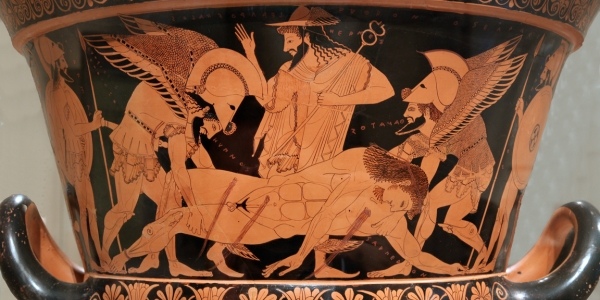
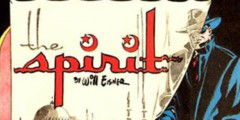
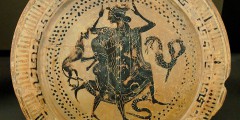
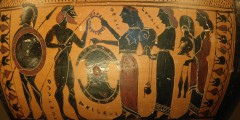
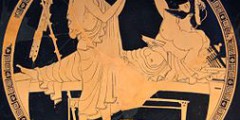
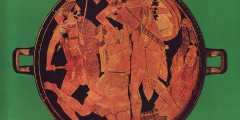
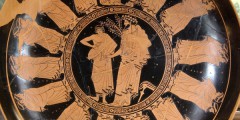
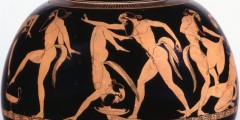
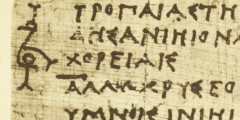

Recent Comments